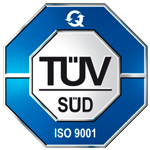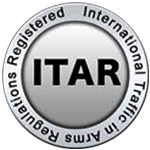Navigating International Certifications for Turning Machining Products
In today’s global manufacturing landscape, the demand for precision and quality in turning machining products has never been greater. As businesses strive to compete on an international scale, understanding the various international certifications pertinent to turning machining becomes crucial. These certifications not only serve as a benchmark for quality assurance but also facilitate smoother entry into diverse markets. However, with the myriad of certifications available, each with its own requirements and standards, navigating this complex terrain can be overwhelming for manufacturers.
This blog aims to provide a comprehensive overview of the essential international certifications relevant to turning machining products. We will explore the significance of these certifications, the processes involved in obtaining them, and the benefits they offer businesses seeking to enhance their credibility and operational efficiency. By examining the crucial role that certifications play in the turning machining industry, we hope to equip manufacturers with the knowledge needed to make informed decisions that will enable them to thrive in an increasingly competitive international arena.

Understanding the Importance of International Certifications in Turning Machining
International certifications play a crucial role in the turning machining industry, where precision and quality are paramount. These certifications not only ensure compliance with global standards but also enhance the credibility of manufacturers in a competitive marketplace. According to a report by the International Organization for Standardization (ISO), organizations with recognized certifications experience a 20% increase in operational efficiency compared to those without. This efficiency translates into better product quality, reduced wastage, and ultimately, increased customer satisfaction. The significance of international certifications extends beyond operational benefits. They serve as a gateway for companies seeking to penetrate global markets. For instance, compliance with ISO 9001, which focuses on quality management systems, is often a prerequisite for suppliers in sectors such as aerospace and automotive. A research study by the Global Industry Analysts indicates that the global market for certified machining products is expected to reach $15 billion by 2025, highlighting the growing demand for internationally certified components. Moreover, certifications foster a culture of continuous improvement within organizations. A survey from the American Society for Quality revealed that 70% of respondents felt that pursuing certifications had a positive impact on their company’s performance metrics. As the turning machining industry embraces advanced technologies such as automation and the Internet of Things (IoT), maintaining up-to-date certifications will be vital for staying relevant and competitive in an ever-evolving landscape.

Key International Standards for Precision Machining: An In-Depth Overview
In the realm of precision machining, adherence to international standards is essential for ensuring product quality and facilitating global trade. The International Organization for Standardization (ISO) has established several key standards that play a critical role in guiding manufacturers. For instance, ISO 9001, which focuses on quality management systems, is a crucial benchmark adopted by over a million organizations worldwide, promoting continuous improvement and customer satisfaction in machining processes.
Moreover, ISO 13485 specifically targets the requirements for quality management systems in the medical device industry, where precision machining is often critical. The global medical device market is projected to reach USD 612 billion by 2025, highlighting the importance of compliance with rigorous standards to ensure safety and performance. Meanwhile, ISO/TS 16949 serves the automotive industry, emphasizing defect prevention and the reduction of variation and waste in the supply chain, which is vital in an industry where precision and reliability are non-negotiable.
Additionally, understanding ISO 2768, which outlines general tolerances for linear dimensions, angular dimensions, and geometrical tolerances without individual tolerance specifications, is imperative for machinists. The increasing demand for customized solutions in various sectors means that achieving high precision can significantly affect operational efficiency and product quality. As businesses navigate through these standards, it's evident that compliance not only reinforces quality assurance but also enhances competitive edge in the global market.

Market Demand: How Certifications Influence Buyer Confidence in Machined Products
In the competitive landscape of machining products, market demand is increasingly shaped by the presence of international certifications. As buyers become more conscientious of quality and safety, they often rely on certifications as a benchmark to gauge the reliability of machined components. According to a report by the International Organization for Standardization (ISO), organizations with certified processes have been shown to improve customer satisfaction by up to 20%, a compelling statistic for manufacturers aiming to enhance buyer confidence.
Furthermore, a survey conducted by the American Society for Quality (ASQ) revealed that 70% of procurement officers prefer suppliers with recognized certifications. This preference underscores the significant role that certifications play in influencing purchasing decisions. Certifications not only serve as evidence of compliance with industry standards but also mitigate perceived risks associated with product quality. In industries such as aerospace and automotive, where precision is paramount, certified suppliers are often prioritized, resulting in a competitive edge in bidding processes.
Moreover, the demand for certified machined products is also reflective of evolving regulatory standards. The global shift towards stricter compliance regulations means that many buyers are unwilling to engage with suppliers that lack certifications. A recent study highlighted that unverified suppliers faced a 30% reduction in contract opportunities compared to their certified counterparts. As a result, machined product manufacturers must navigate the complexities of obtaining relevant certifications to meet this escalating market demand and instill confidence in potential buyers.

Navigating Compliance: Challenges Faced by Manufacturers in Gaining Certifications
Manufacturers of turning machining products often find themselves navigating a complex landscape of international certifications. Compliance is not merely a regulatory hurdle; it represents a significant challenge that can impact a company's competitiveness on a global scale. According to a 2022 report by the International Organization for Standardization (ISO), over 80% of manufacturers indicated that achieving and maintaining certifications is a key concern, particularly in an increasingly stringent regulatory environment.
One of the main challenges manufacturers face is the variation in certification standards across different regions. For instance, the ISO 9001 standard, which focuses on quality management systems, is widely recognized, but additional certifications such as AS9100 for aerospace or IATF 16949 for automotive require specialized compliance measures. A 2023 survey highlighted that 58% of companies reported difficulties in aligning their operational processes with multiple certification requirements, leading to increased costs and extended timelines for achieving compliance.
Moreover, the intricacies of documentation and audit processes cannot be overlooked. A recent analysis from the Compliance Institute found that 65% of manufacturers experienced delays in product launch due to incomplete or inaccurate documentation for certifications. This not only hampers operational efficiency but can also result in financial losses, as companies may miss out on market opportunities while waiting for certification approvals.
In this evolving landscape, manufacturers must adopt robust compliance strategies, invest in employee training, and leverage technology to streamline their certification processes. As international markets continue to grow increasingly competitive, those who can navigate these certification challenges effectively will be poised for success.
The Future of Turning Machining: Trends in International Certification Requirements
The turning machining industry is witnessing a significant transformation driven by evolving international certification requirements. As globalization continues to reshape the market landscape, manufacturers are increasingly obligated to meet stringent standards that assure quality and safety in machining products. This trend not only enhances the credibility of businesses but also fosters greater acceptance of their products across various international markets.
One dominant trend is the growing importance of ISO certifications, which serve as vital benchmarks for quality management systems. Companies that attain these certifications demonstrate their commitment to continual improvement and customer satisfaction. Moreover, the emphasis on sustainability has led to an uptick in certifications focused on environmental management, compelling manufacturers to adopt greener practices. This shift not only addresses regulatory requirements but also aligns with consumers' increasing preference for environmentally responsible products.
Another significant aspect of the future of turning machining lies in the rising demand for industry-specific certifications, such as those related to aerospace and medical devices. These sectors require precision and reliability, heightening the certification requirements to ensure compliance with safety and quality standards. As the market becomes more specialized, businesses will need to invest in understanding and fulfilling these niche demands to maintain a competitive edge. Ultimately, navigating the complex landscape of international certifications will be key for manufacturers aiming to thrive in the global marketplace.
NORTH EASTON MACHINE • 218 Elm Street • North Easton, MA 02356 • 508-238-6219

